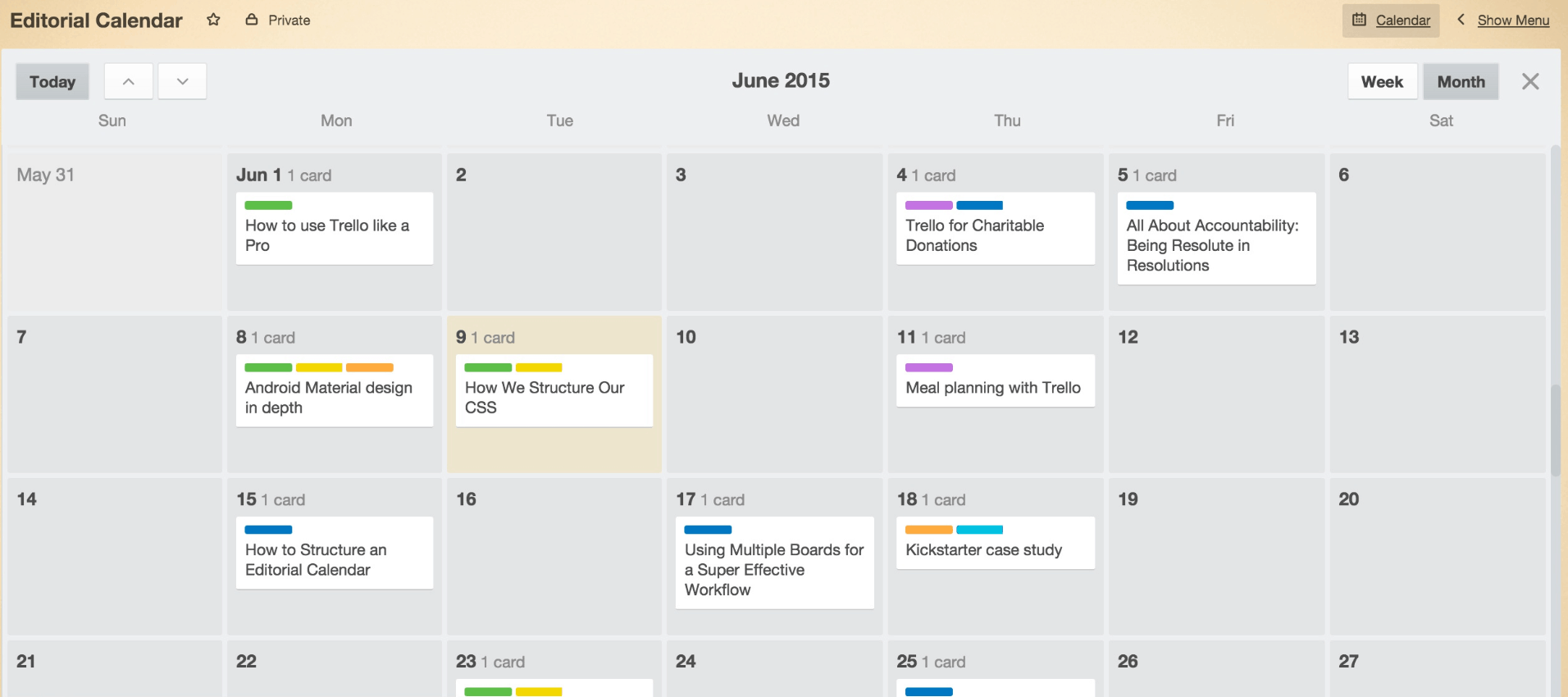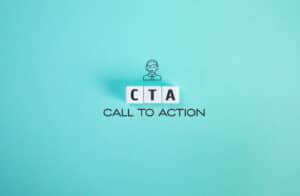Have you ever followed a TV show that was bounced across stations and time slots or suddenly canceled without warning? It’s terribly frustrating.
Your podcast listeners feel the same way when you fail to follow a podcast editorial calendar and deliver your episodes inconsistently.
Podcast listeners are generally more engaged with the content than, say, blog readers or social media followers. Your listeners look forward to your episodes. Each time you fail to deliver, you erode their connection with your brand. Eventually they’ll switch to someone they can depend on.
Why are many podcasts inconsistent? There are a lot of reasons, but it usually comes down to a lack of money, time, or interest.
Sadly, inconsistency often leads to abandonment. This is called podfading. Some podcasts start off strong, but fade over time. They start publishing late, then they start missing entire episodes. Eventually they grow frustrated with their inability to stay consistent, so they stop creating podcasts entirely. There’s no final show. Things just… stop.
But you don’t have to fall victim to inconsistency and podfading. You just need some simple strategies to keep yourself on track.
1. Don’t Beat Yourself Up About It
This is a bit counterintuitive, but bear with me for a minute.
One of the best ways to stay consistent with your podcast editorial calendar is to not punish yourself if you aren’t consistent.
While it’s best to produce podcast episodes on a regular schedule, there are plenty of good reasons why you might be late with an episode or even miss one entirely.
Sometimes guests cancel at the last minute. You might lose power for a few days. Or your partner may have to travel suddenly, leaving you with all the household and family duties.
When these kind of things happen, there’s no reason to come down hard on yourself. They don’t make you a bad host or a poor entrepreneur. Your listeners will understand.
In fact, if you explain why you were late on the next episode, your flaws and challenges can actually humanize you to your listeners and build a stronger connection to your community.
It’s better to publish late or miss an episode than quit altogether. If you allow yourself to become frustrated or stressed because you can’t keep a perfect podcast editorial calendar schedule, there’s a good chance you’ll begin to resent podcasting and start to podfade.
2. Build an Actual Podcast Editorial Calendar
Notes on a scrap of paper aren’t sufficient. You need an actual podcast editorial calendar to organize your production schedule.
A calendar system gives you a big picture view of your production process. It keeps you consistent by making you aware of what’s due, what’s upcoming, and who’s responsible for it. Here’s a basic example:

Without a plan, there’s a good chance you (or someone on your team) will miss a deadline and disrupt the podcast schedule.
Essentially, a podcast editorial calendar is a list of podcast topics. Each topic should include dates for all of your deliverables as well as the name of the person responsible. Here’s an example:
Topic: How Jennifer Gibson Turned a Nearly-Bankrupt Spa into a $50K/Month Machine
- Start planning: October 8th – Mark and Hank
- Record: October 12th – Mark
- Sending to editor: October 15th – Megan
- Schedule on site with page content: October 22nd – Hank
- Publish date: October 29th
Yes, it’s really that simple.
There are plenty of different tools you can use to organize your podcast editorial calendar. Trello, Wrike, and Asana are great project management tools for people and teams with advanced needs.
We recommend using the simplest tool that fits your needs. For most podcasters, that means something basic like Google Calendar.
A good rule of thumb is to add at least one new topic to the end of your podcast editorial calendar for every episode you publish. This ensures you never run out of content.
Though if you’re like most podcasters, you probably have an endless stream of ideas. Write them down as soon as they come to you. You can always remove them later if you decide they aren’t worth your time.
Podcast editorial calendars are especially important if you rely on external people, like guest contributors or interviewees. Coordinating with outside people can be complicated, so you’ll need a calendar to get the timing right.
Keep in mind that just because you have a podcast editorial calendar doesn’t mean you’re bound to it. If something interesting or timely comes up, slot it in earlier. If a pre-planned topic no longer makes sense or doesn’t add a lot of value, slice it out.
3. Segment Projects Into Smaller Tasks
It’s nearly quitting time and the only thing left on your to-do list is a big project. What do you do?
Like most people, you probably call it an early day. No sense starting a big project late in the day, right? You won’t make much progress anyway.
We do this because big tasks are daunting. We get tired just looking at them, especially when we confront them after we’ve been working for a while. It’s tempting to worry about them tomorrow, even though they could throw off your podcast schedule.
So it’s a lot easier to stay consistent when you break big projects on your podcast editorial calendar into small, manageable tasks.
If you were planning a party, you might break it down like this:

Your podcast episodes are obviously larger and more complex than a birthday party, but the principle is the same. Segment each episode into small chunks. List everything you have to do, no matter how small.
For instance, a list might look like this:
- Preliminary topic research
- Identify potential interview guests
- Reach out to potential guests
- Create questions for guest
- Record the episode with guest
- Edit episode recording
- Add pre-roll and mid-roll ads
- Upload podcast
- Create and schedule webpage
- Create and schedule email newsletter
- Create and schedule social media posts
- Follow up with guest
As you can see, all of those tasks are part of publishing a podcast episode, but they’re quite manageable when you break them into small pieces. You can do plenty of them in a few spare minutes here-and-there. This way you always keep moving forward consistently.
4. Work At A Pace, Even If You Get Ahead
Once you settle into a work pace that reliably puts out podcast episodes, it’s important to stick to that pace, even if you get ahead of schedule.
If you manage to finish an episode in less time than you planned, don’t spend your new free hours on Netflix. Instead, continue working at your comfortable pace.
What should you work on next?
Start completing tasks for the next episode on your podcast editorial calendar, even if you don’t intend to publish it for weeks. You don’t have to record the audio, but little things like emailing potential guests, researching data, or outlining your script can really get you ahead.
Look to your editorial calendar as a guide. If you segmented your tasks well, it should be easy to identify things to do to keep working.
Plus, if you have a good idea of what’s coming up in future episodes due to working ahead, you can better promote them in earlier episodes.
If you tend to create a lot of episodes with guests, one way to keep yourself moving at a good pace is to mix in a few solo monologue-style episodes into your podcast editorial calendar every once in a while. Those are usually faster to create because the scripts are simpler. You could also create a few solo shows in reserve in case you struggle one week.
Automation tools are also a big help here. The more you can automate, the less you’ll have to do. Working less means producing content faster so you stay consistent.
Here are some automation tools that might help:
- Calendly – Quickly schedule with co-hosts and guests.
- Google Voice Typing – Record your podcast notes or transcribe whole episodes.
- Buffer – Schedule social media posts in bulk.
- Canva – Create quality artwork without hiring an expensive designer.
- Feedly – Keep track of articles and research.
- Castos – Simple podcast hosting, uploading, and republishing to other platforms.
- Email marketing tool – There are many, but they’re essential for keeping in touch with your email list. Check out some reviews to determine which one meets your needs.
- Zapier or IFTTT – Good for connecting different apps and creating unique automations.
Summary
The worst part about inconsistency with your podcast editorial calendar is that it’s easy to tolerate, at least at first. When no one complains after you publish a few days late or fail to produce a hyped-up episode, it’s easy to assume your listeners don’t care.
But they care and they judge you for it. Over time, inconsistency will burden your growth and prevent your fans from truly connecting with your podcast.
So if you find yourself inconsistent, take whatever steps you can to get back on track. Don’t let inconsistency become “business as usual.”


